How to Finance Your Home Purchase in Nigeria: A Guide to Mortgage Options
Purchasing a home in Nigeria is a major financial commitment, and for most people, it requires some form of financing. While cash purchases are common, not everyone has the resources to buy a property outright. Fortunately, there are several financing options available to homebuyers in Nigeria, including mortgages, cooperative loans, and government housing schemes. Understanding your financing options and choosing the right one can save you both money and stress as you move forward with your home-buying journey.
In this guide, we’ll walk you through the different home financing options available to Nigerians and provide tips on how to choose the best one for your needs.
1. Bank Mortgages in Nigeria
Mortgages are the most common form of financing for homebuyers in Nigeria. A mortgage is essentially a loan from a bank or financial institution to help you buy a home. In return, you agree to repay the loan over a specified period (usually 5-20 years) with interest. The property you purchase acts as collateral for the loan.
Eligibility for Bank Mortgages
To qualify for a mortgage in Nigeria, you’ll need to meet specific criteria, which vary from one bank to another. However, common requirements include:
- Age: You must be between 21 and 60 years old to apply for a mortgage.
- Income level: Banks will assess your ability to repay the loan based on your monthly income, employment status, and other financial obligations. Generally, your monthly mortgage repayment should not exceed 30-40% of your monthly income.
- Credit score: A good credit history increases your chances of securing a mortgage. Banks will typically check your credit score through credit bureaus such as CRC Credit Bureau and FirstCentral Credit Bureau.
- Down payment: You’ll need to make a down payment, typically between 10-30% of the property’s value. This amount varies depending on the bank and the type of mortgage product.
Popular Banks Offering Mortgages in Nigeria
Several banks in Nigeria offer mortgages to homebuyers, with varying interest rates, loan terms, and conditions. Some of the major banks providing mortgage products include:
- GTBank: Known for competitive interest rates and flexible mortgage options.
- Access Bank: Offers home loans with competitive rates for both first-time and existing homeowners.
- First Bank: Provides a range of mortgage options with up to 20-year repayment periods.
- Zenith Bank: Offers both fixed-rate and variable-rate mortgages with flexible repayment terms.
Before selecting a bank, it’s important to compare interest rates, processing fees, and loan conditions to determine which mortgage product best suits your needs.
Types of Mortgages Available
- Fixed-rate mortgage: The interest rate remains constant for the entire loan term, making monthly payments predictable. However, fixed-rate mortgages tend to have higher interest rates than variable-rate mortgages.
- Variable-rate mortgage: The interest rate fluctuates based on market conditions, which means your monthly payments could increase or decrease over time.
- Interest-only mortgage: You only pay the interest on the loan for a certain period, typically 5-10 years, after which you begin paying both the principal and interest. While this lowers your initial monthly payments, it increases the total amount you pay over the loan’s term.
2. Cooperative Society Loans
Cooperative societies are another financing option for Nigerian homebuyers, especially for members of cooperatives in various organizations or workplaces. Cooperative societies offer affordable housing loans with lower interest rates than commercial banks. The major advantage of cooperative society loans is that they are more accessible to individuals who may not meet the stringent eligibility criteria of traditional banks.
How Cooperative Society Loans Work
- Membership: To access a cooperative loan, you must first become a member of a recognized cooperative society. Most organizations, including government agencies, companies, and trade associations, have cooperative societies that provide loans to their members.
- Loan terms: Cooperative loans typically offer favorable terms, such as lower interest rates (often around 5-10%) and flexible repayment schedules. Loan amounts are usually based on the member’s savings or contributions to the cooperative.
- Collateral: Some cooperative societies require collateral, while others may offer loans based on trust and the member’s track record within the cooperative.
For many Nigerians, cooperative loans are an attractive alternative because they often offer lower interest rates and more flexible terms than traditional bank mortgages.
3. The National Housing Fund (NHF)
The Nigerian government, through the Federal Mortgage Bank of Nigeria (FMBN), operates the National Housing Fund (NHF), a scheme designed to make housing more affordable for Nigerians. The NHF provides long-term, low-interest loans to Nigerian workers in both the public and private sectors.
Eligibility for NHF Loans
To qualify for an NHF loan, you must meet the following criteria:
- Must be a Nigerian citizen: Only Nigerian citizens are eligible for NHF loans.
- Contribute to the NHF: To apply for a loan, you must have been contributing to the NHF for at least 6 months. Contributions are typically made through monthly deductions from your salary.
- Income level: Your monthly salary must be within a specified range. Typically, NHF loans are available to individuals earning between N15,000 and N100,000 monthly.
Loan Details
- Loan amount: NHF loans can range from N500,000 to N15 million, depending on the borrower’s ability to repay.
- Interest rate: The NHF offers an interest rate of just 6% per annum, making it one of the most affordable options for financing a home purchase in Nigeria.
- Repayment period: The repayment period for an NHF loan can be as long as 25 years, depending on the borrower’s age and employment status.
One of the major benefits of the NHF loan is its low-interest rate, making it highly attractive to middle-income Nigerians who are looking for affordable housing options.
4. Real Estate Investment Trusts (REITs)
For those interested in real estate investment as a means of financing a property purchase, Real Estate Investment Trusts (REITs) can provide an opportunity to generate passive income to fund homeownership. REITs allow individuals to invest in large-scale real estate projects, such as commercial buildings, without having to own the properties directly.
While REITs don’t directly finance home purchases, they can help generate income or capital appreciation that can be used toward purchasing a home. By investing in a REIT, you can earn dividends and share in the appreciation of real estate assets, ultimately building the funds needed for a down payment or full purchase.
5. Personal Loans and Other Financing Options
In addition to traditional mortgages and NHF loans, some Nigerian homebuyers opt for personal loans as a way to finance part of their home purchase. Personal loans from banks, microfinance institutions, or fintech companies can be used to cover the down payment or bridge the gap if you need extra funds to complete the purchase.
However, personal loans tend to have higher interest rates (often 15-30%), so they may not be the most cost-effective option for long-term financing. It’s essential to carefully consider the terms and conditions before opting for a personal loan.
6. Tips for Choosing the Right Financing Option
Choosing the right financing option for your home purchase in Nigeria depends on several factors:
- Interest rate: Look for the most affordable interest rate that fits your budget. While NHF loans have the lowest rates, cooperative loans and bank mortgages may offer more flexibility.
- Repayment terms: Ensure that the repayment terms align with your financial situation. Consider how much you can comfortably repay each month without putting a strain on your finances.
- Eligibility requirements: Some financing options may be more accessible to you than others. For example, cooperative loans may have lower entry barriers compared to bank mortgages.
- Loan amount: Make sure the financing option offers enough funds to cover the property you want to buy, taking into consideration additional costs like registration and stamp duty.
Conclusion
Financing your home purchase in Nigeria doesn’t have to be daunting. By understanding the different mortgage options and financing methods available—whether through banks, cooperative societies, the NHF, or personal loans—you can make an informed decision that aligns with your financial goals. Each option has its pros and cons, so it’s important to carefully assess your needs and long-term plans before committing.
Start planning your home purchase today by considering the financing options that best suit your circumstances, and soon enough, you’ll be on your way to owning your dream home in Nigeria.

